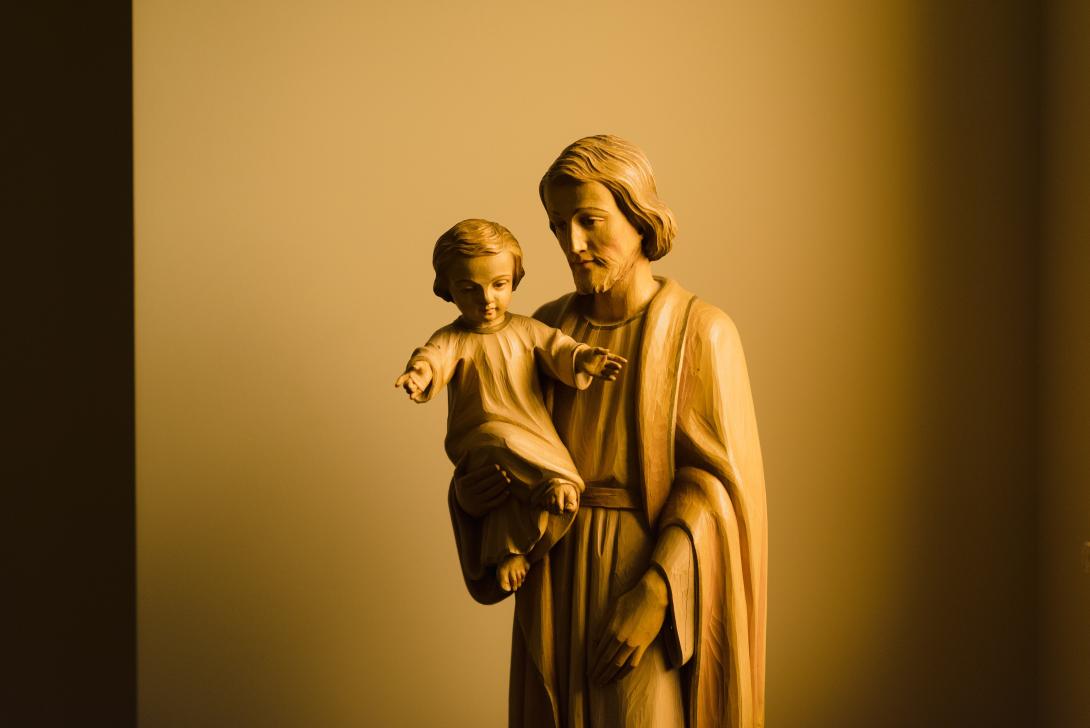As we conclude the Year of St. Joseph, here’s a reflection on Patris Corde, Pope Francis’ apostolic letter on this multifaceted father and guardian of the Holy Family

© Photo by Josh Applegate at Unsplash
“WITH A FATHER’S HEART: THAT IS HOW Joseph loved Jesus.” This is how Pope Francis opened his Apostolic Letter, Patris Corde, which was issued to mark the 150th anniversary of the proclamation of St. Joseph as Patron of the Universal Church. It was on December 8, 1870, when Pope Pius IX made the declaration.
To mark the occasion, Pope Francis saw fit to dedicate a year to St. Joseph from December 8, 2020, to December 8, 2021, to “increase our love for this great saint, to encourage us to implore his intercession, and to imitate his virtues and his zeal.”
Joseph would certainly not have accepted his role in the history of salvation if he had not chosen God as the ideal of his life. Even if the angel appeared to him in his sleep and told him about the plan of God for humanity, if he did not have faith in God and if he did not make him the center of his life, he would have easily set aside the angel’s reminder and set off on his own.
We know that when Joseph woke up from the dream, he chose to believe and follow what God’s messenger told him.
Just as Mary, Joseph also had his own “annunciation,” and when he woke up, his actions were a clear indication of his yes to God.
It was not the only time that we saw Joseph’s obedience to God. The Gospel made it clear that through the lineage of Joseph, the prophecies would be fulfilled, but Joseph’s purpose was not only to provide this lineage, nor was it limited to protecting Mary and the infant Jesus.
He had to be a father. “In every situation, Joseph declared his own fiat, like Mary at the Annunciation and Jesus in the Garden of Gethsemane.” As Joseph was fulfilling his role, “during the hidden years in Nazareth, Jesus learned at the school of Joseph to do the will of the Father” which, as Pope Francis put it, helped Jesus in the most difficult moment of his life, when “in Gethsemane, Jesus chose to do the Father’s will rather than his own, becoming ‘obedient unto death, even death on a cross’ (Phil 2:8).”
So, in the life of St. Joseph, we see how someone who has chosen God as the ideal of his life obeys the will of the Father in every present moment that comes and, through his witness, helps others so they may walk along the ray of God’s will for them. Focolare spirituality aims at a collective holiness, that is, going to God together.
The Marian dimension of this spirituality teaches us that we should imitate Mary as she did not put the spotlight on herself but on Jesus. When she sang the Magnificat to her cousin, Elizabeth, she praised God’s work in her and in his people. She did not glorify herself for the role she was playing but she glorified God for his greatness. At the wedding at Cana, she told the people, “Do whatever he tells you” (Jn 2:5).
But, even if someone is in the shadows, it does not mean that their contribution is not significant. Joseph “the man who goes unnoticed, a daily, discreet and hidden presence… reminds us that those who appear hidden or in the shadows can play an incomparable role in the history of salvation.” The same goes for all, who, in one way or another, aim for “that all may be one” (Jn 17:21).
Just as Focolare founder Chiara Lubich suggested in the year dedicated to Mary, so we can apply the same in this year dedicated to St. Joseph, to live like Joseph, as if we were everyone’s father, “a shadow of the heavenly Father, who ‘makes his sun rise on the evil and on the good and sends rain on the just and on the unjust’ (Mt 5:45). And a shadow that follows his Son.”
“And that, of course, is the message of Christmas. We are never alone. Not when the night is darkest, the wind coldest, the world seemingly most indifferent...” ― — Taylor Caldwell, (1900–1985), British-born American novelist












